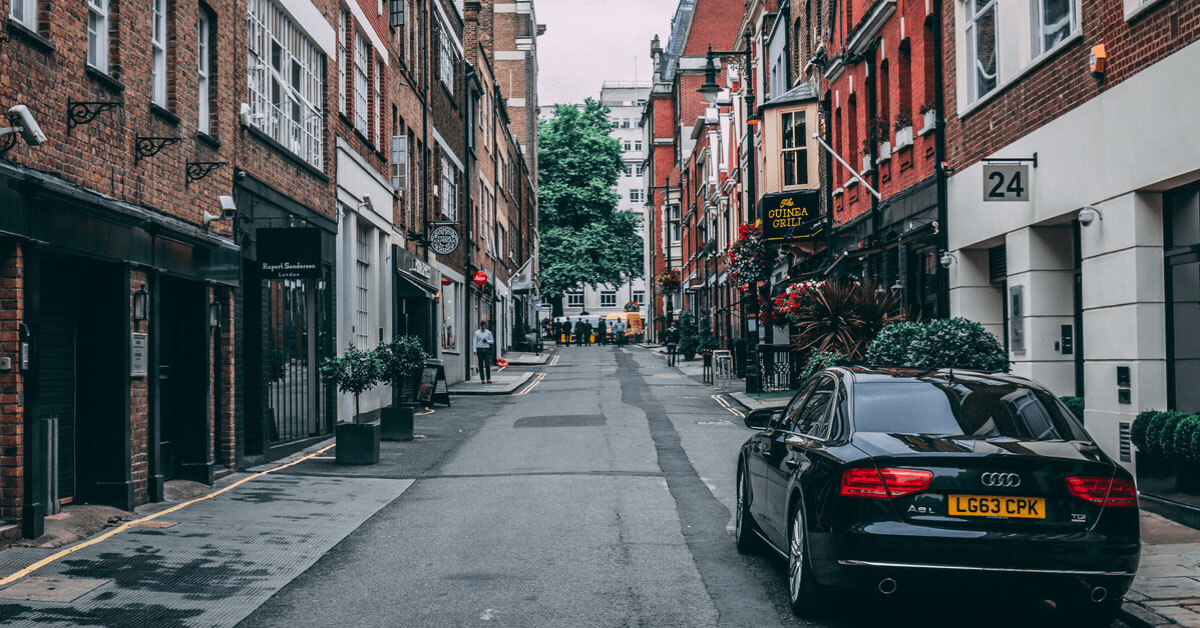Buying a house will be one of the biggest investments of your life. Don’t rush, research everything and consider what you want and don’t want in a home.
There can be so much to think about that it can be overwhelming but you don’t want to miss the opportunity to ask valuable questions.
To help with your home buying process we’ve created this guide with a list of questions to ask when buying a house in 2020.
From a new build to purchasing an older home, this guide has you covered.
We have a lot to cover so let’s get started.
Question #1: What’s My Total Budget?

Photo by Sabine Peters on Unsplash
You’ll want to have a clear understanding of what you can afford before you start your home buying journey. There are additional service charges to consider that many first-time buyers forget.
Property taxes, homeowners insurance, home maintenance and any renovations you want to do will cost you more money than the listing price of the home.
There are always going to be hidden fees and it will save you a lot of stress to be thinking about it before you start looking at properties.
Question #2: Why Is The Seller Leaving?
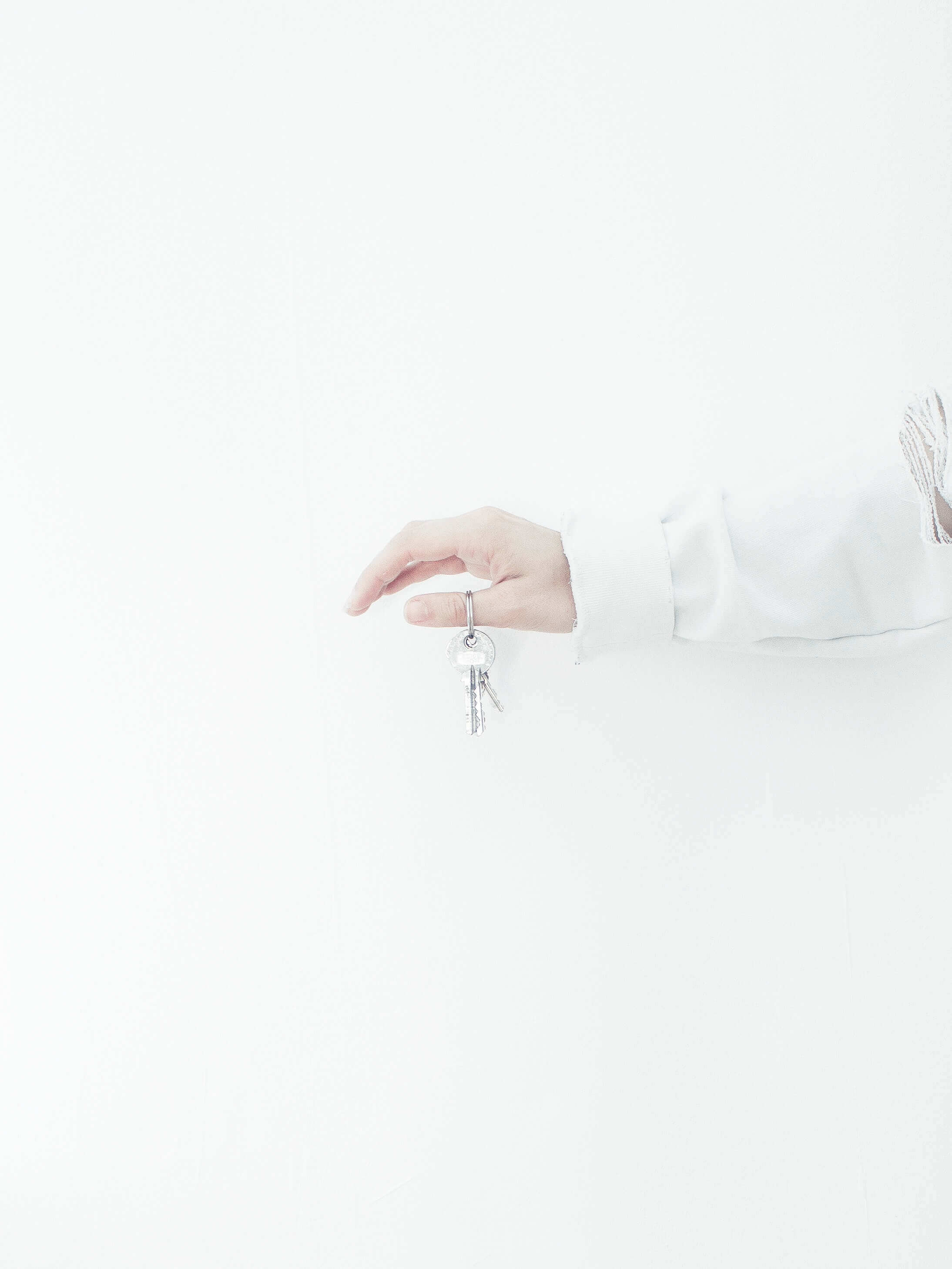
Photo by Sylvie Tittel on Unsplash
It’s important to ask the current owners why they are leaving their home. When you can get a clearer picture of why it’ll help you figure out how motivated they are when negotiating.
People choose to move on for a variety of reasons. Downsizing, job relocation, or as a result of a major life event are a few common ones that people experience at one point.
However, if the reasons are related to the neighbourhood or poor plumbing, you might want to reconsider your options.
Knowing the motivation of the seller can help you when you are making a final decision. Don’t be afraid to ask this question or else you might get stuck in the same situation.
Question #3: How Long Has It Been On The Market?
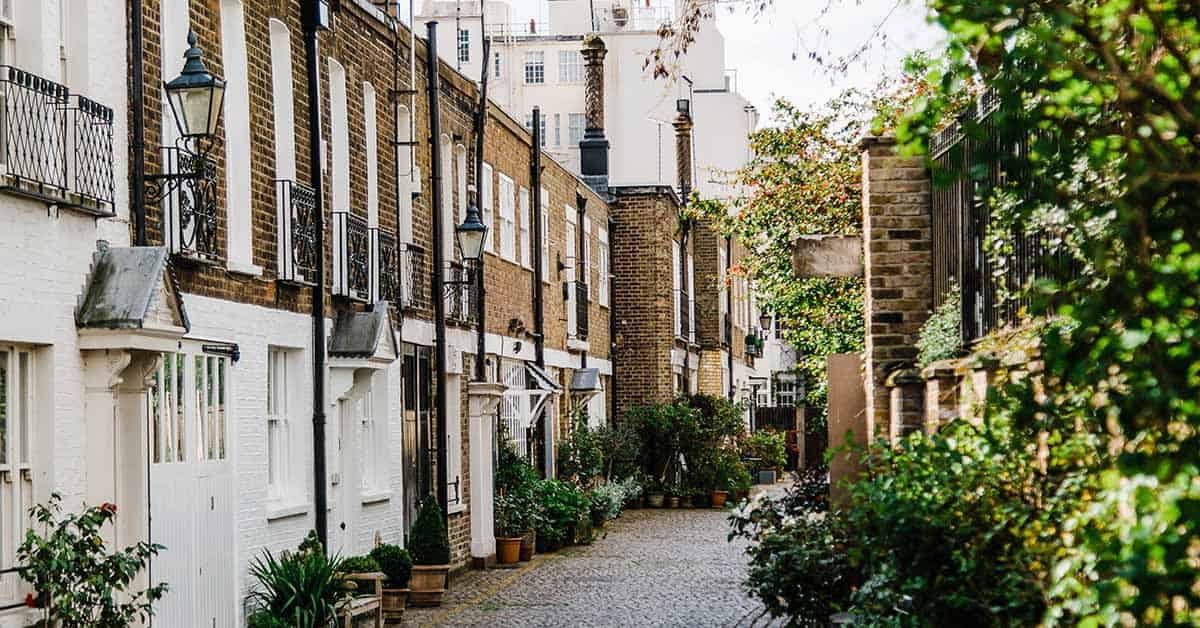
Photo by Bruno Martins on Unsplash
Photo by Gus Ruballo on Unsplash
Sometimes houses stay on the market longer than expected due to the asking price being set way too high. But there could be multiple factors that are also at play.
If the price has been lowered multiple times, use this information to your advantage.
When a house has been on the market for a while and at different prices, the seller is usually more motivated and flexible to sell the house at a lower offer.
They might even be willing to bargain with replacing noticeable issues like carpet or blind damage to offset your concerns of it sitting on the market for too long.
Question #4: How Many Previous Owners Have There Been?

Photo by Jen Theodore on Unsplash
You might think why should I care if a home has had many previous owners?
It’s an important question to ask as there are usually very good reasons why a property changes so frequently. Especially if previous tenants only lived there a few months.
The more information and knowledge you have about the history of the property, the better equipped you will be in making your final decision.
People typically spend 5-15 years in one home and if there have been multiple owners that could give you a hint that either there is a house or surrounding area problem.
Question #5: How Is The Neighbourhood?
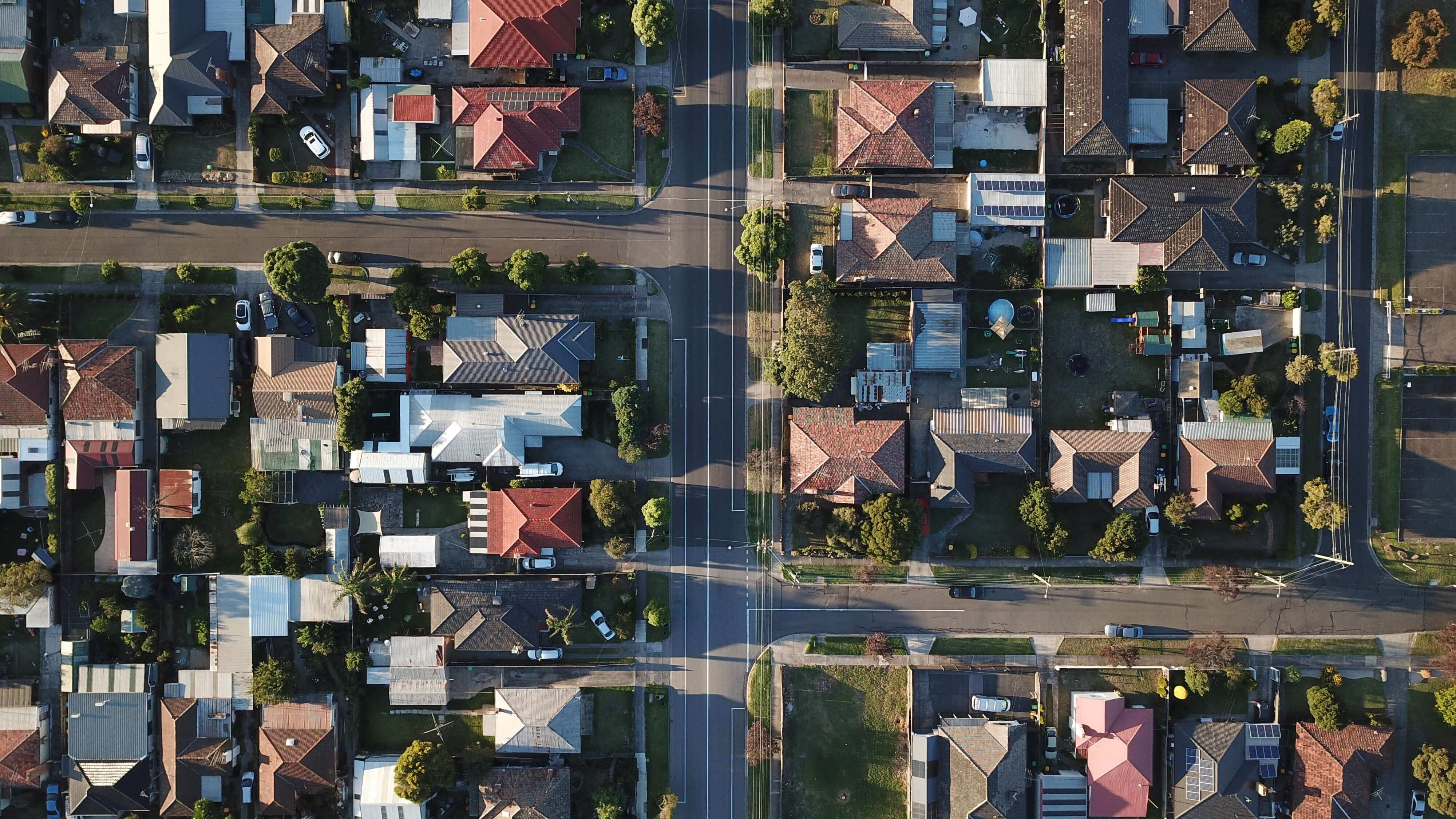
Photo by Tom Rumble on Unsplash
You’ll want to ask the seller if there are rules you have to follow for the neighbourhood like mowing your yard by a certain day or not being able to put up decorations.
This is where Google comes in handy. Do a quick search about the local area and see what positive and negative results show for your new area and if crime is common.
You’ll also want to visit the area at different times of the day. Is it nosey during the day? Do neighbours gossip every Saturday? Are there teenagers causing trouble at night?
Get a well-rounded picture of how life is in that neighbourhood before you commit as potential buyers.
Take note if neighbours have fencing, animals, pools, etc. You may need planning permission from a homeowners association to add anything to the property.
Question #6: What Are The Neighbours Like?

Photo by David Marcu on Unsplash
There’s also some key information, such as community amenities, crime statistics, school ratings and how busy traffic is, that play a factor in choosing where to live.
Are your next-door neighbours friendly or like to keep to themselves? Are there a lot of pet owners or a few pets around? Do people stay up at night late and make a lot of noise?
If you can, try to talk to some of the neighbours to get a better understanding of the vibe. See if you and your family can fit into the community that’s already present.
Question #7: How Much Will Utility Bills Cost?

Photo by Unsplash
It is inevitable that you will have to pay monthly utility fees for your new home. Having an idea of what your monthly costs will be can help you budget for those expenses.
Be sure to ask for the average cost and when the peak months are that costs will be higher (like during the summer or winter).
The cost of utilities is dependent on the appliances and features that are built-in. You can consider whether you need to upgrade your appliances to be more energy efficient.
Also, ask the previous owner or seller if they have an energy performance certificate for any appliances. This could help save you money on insurance costs and give you peace of mind about the cost of your new utilities.
Question #8: What’s Included In The Sale?
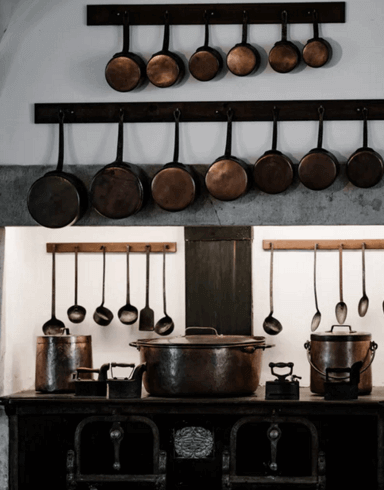
Photo by Annie Spratt on Unsplash
Ask what the seller will be leaving behind and what they are taking when they move.
It would be devastating to find out after everything is signed that your favourite chandelier in your dream home will not be staying in the house.
This also applies to furniture, washer/dryer, kitchen appliances, and AC units. Rather than being surprised at what’s included in the house price, ask the right questions to avoid confusion.
Question #9: What Is The Parking Like?
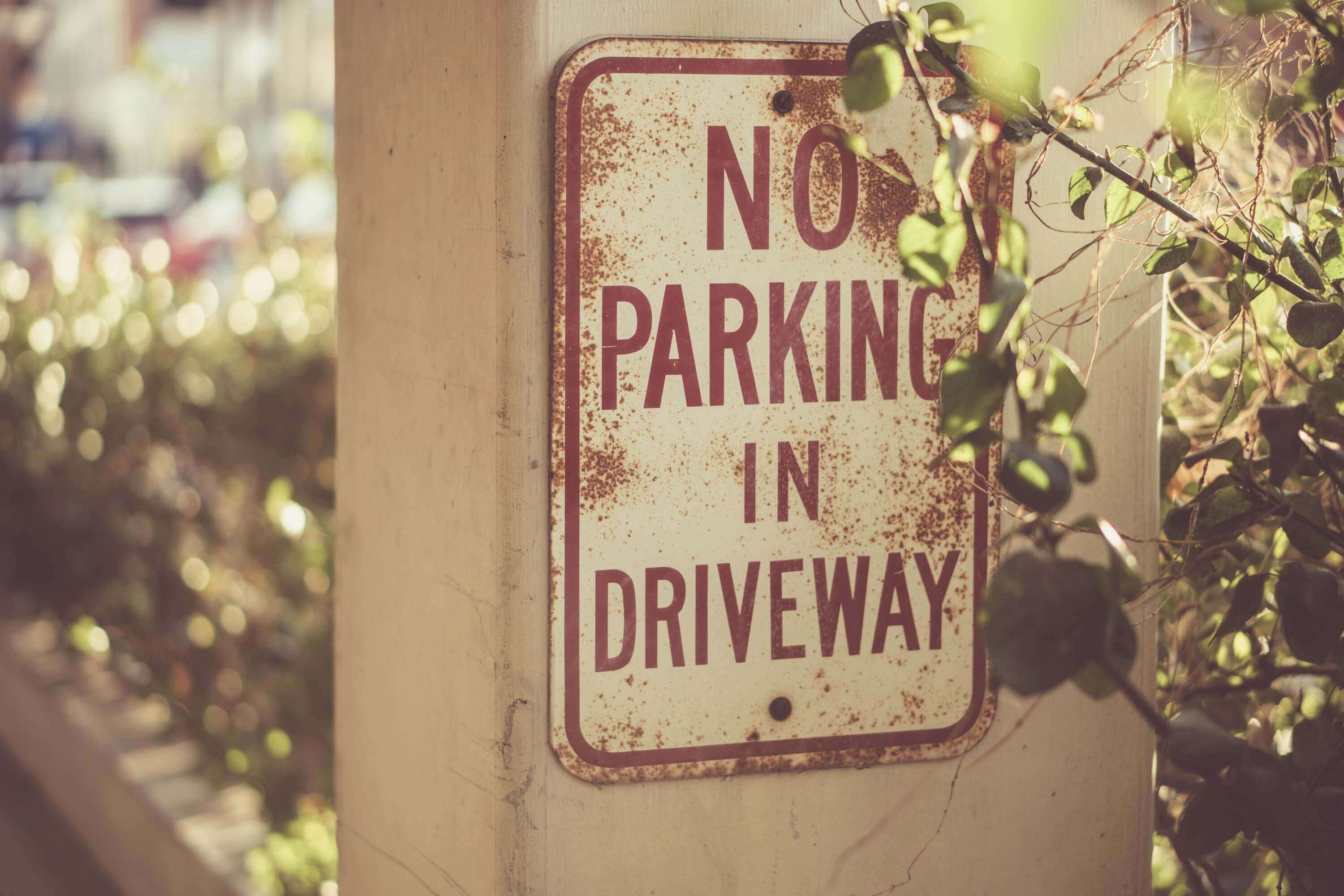
Photo by Simeon Frank on Unsplash
Do you have multiple cars in your family? Do you have a larger SUV that might not fit in all garages? Consider all these options when choosing your first home.
It would be a good idea to visit the house after work hours and see how crowded the parking is on the street. Busy streets are more difficult to navigate and might be problematic for families with small children.
If you use public transport, give some thought about the distance it would take you to catch transportation and the commute time.
Question #10: What Would Your Commute Look Like?
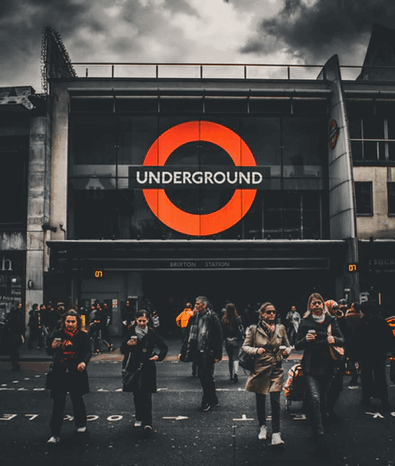
Photo by Luke Stackpoole on Unsplash
Speaking about commute time, you will be traveling from work many times and it would be disappointing to find that what should be 20 minutes is a 1.5 hour commute.
Wake up early and see how the traffic is at the time you would be making your commute. After work one day, see how long it would take to get to your new home.
If the ride time is too long or too hectic, your perfect home might not be such a perfect fit.
Question #11: How Old Is The Roof?

Photo by Andrej Lišakov on Unsplash
A roof can typically last between 15-30 years depending on weather conditions. Roofs are necessary for a home but they can get expensive if you have to replace part/all of it.
If your new home’s roof is at the end of its lifespan, you will have to end up spending thousands of pounds after all the expenses you already have to shell out.
Inquire from the seller when the last time the roof was replaced or if there has been any work done on it so you can be able to plan accordingly in your decision.
Look for any visible damage from the outside – dents from hail, missing shingles or missing rain gutters.
Question #12: How Much Have The Neighbourhood Homes Sold For?

Photo by Aldric RIVAT on Unsplash
Figuring out the answer to how much the other neighbourhoods houses have sold for will be your best indicator of value when comparing homes.
Banks will typically calculate this information when determining mortgages so it’s valuable information to have to get a range of what you should expect to pay.
You can ask your real estate agent for comparable prices of homes in the area still on the market and ones that have sold within the past 6 months.
If the asking price for your home is too high, you might be able to leverage that information to negotiate a lower price.
Question #13: How Are The Schools In The Area?

Photo by Unsplash
If you have children, or plan on having children in the next few years, it’s imperative to do your research on the school district in the area and what services they can provide.
Do a Google search to compare school districts in the area. Having your children attend better schools can ultimately help them have better opportunities in life for success.
Even if you don’t have kids, the quality of school districts can affect home values.
People are willing to pay more for a reputable school. When you think about selling your home in the future, potential new buyers that have families will want a good district.
Question #14: How Old Are The Appliances?

Photo by Stefan C. Asafti on Unsplash
Understanding the expected lifespan for your larger appliances, like air conditioner, furnace , water heater, dryer, and stove, can help you anticipate replacement expenses.
Usually this is uncovered during the home inspection, however, you can ask this question to the seller once you’re viewing to get a clear picture of their condition.
If the items are towards the end of their life cycle, ask the seller to purchase a home warranty or adjust the asking price.
You don’t want to find yourself in a situation where a few months after you move in you realise you have to spend thousands of pounds fixing these appliances you thought were in good condition.
Question #15: Are There Any Water Related Problems?

Photo by Walter Randlehoff on Unsplash
Things to consider:
- Have any of the pipes burst?
- Have the gutters ever backed up?
- Have there been any leaks between the water meter and the house?
- Has there ever been standing water in the basement?
The big worry about water related issues is the moisture that could linger which could result in mold. Avoid stress and ask if there have been any water pressure issues.
Understanding the previous history of the house will better prepare you to handle new problems that might arise if you do decide to choose the home.
Question #16: What Is The Status Of Your Credit Score?
The reality is your credit score is going to have a major impact on purchasing your home. Getting approved for a mortgage might be difficult if you don’t have a good score.
Your credit score measures how responsible you’ve been with borrowed money in the past. The better your credit score, the better the interest rate you’ll be offered.
If you are purchasing a home for the first time, it’s usually a good idea to have a score around 700 or higher to get the best deal possible.
Question #17: What Bank Should I Work With?

Photo by Etienne Martin on Unsplash
You will want to make sure you do proper research when selecting a bank to help with your mortgage. Check out the different interest rates and loan options available.
This would be a great time to ask for recommendations from your friends and family members on what they did or any experience they have.
If you need more assistance in making a decision, search for community groups boards on Facebook that allows neighbours to ask questions and connect with others.
Don’t feel obligated to choose your bank, sometimes smaller credit unions have better interest rates and you should compare multiple options before making a final decision.
Question #18: What Repairs Have Been Done?
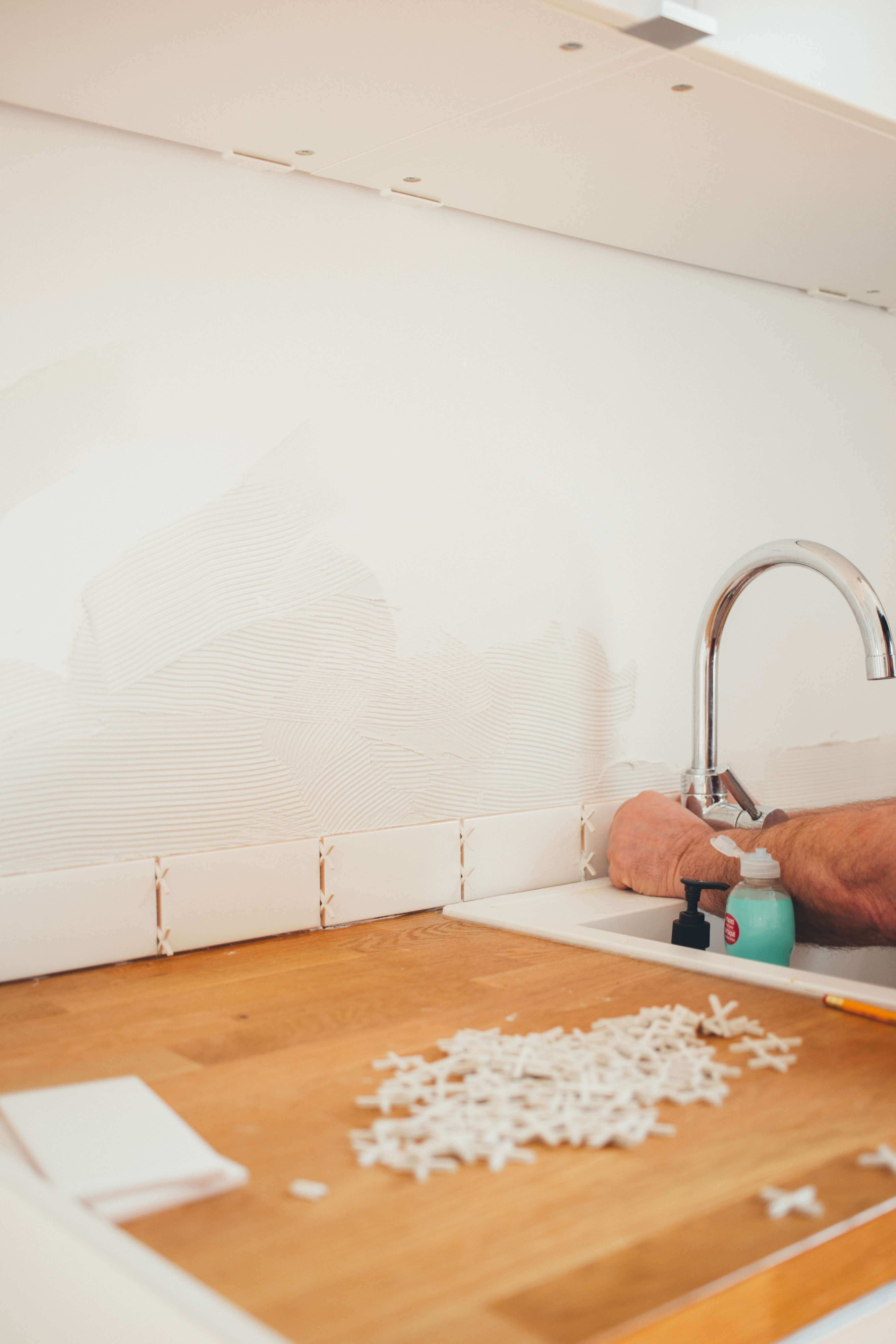
Photo by Charles ?? on Unsplash
Ask the current seller about past maintenance and any repairs they have done since living there.
Inquire about the average costs for those fixes and when they happened. Home inspectors will also be able to help identify major repairs once you’ve picked a home.
It’s important to know if the water heater was recently replaced or if the roof needs to be replaced soon. Stay up to date since it will become your responsibility once you move in.
Older homes might require more upkeep and over time the maintenance costs can add up.
Question #19: Are There Good Local Amenities?

Photo by Kevin Curtis on Unsplash
When you select a home, you’re committing to more than just the physical building. Local amenities can give you a sense of community and provide you entertainment.
Some people prefer living in suburban areas with a community park and pool. Some prefer a more rural setting that’s open and spaced out with fewer neighbours.
Choose what works for your preference. Amenities could also include a shopping complex, gym, medical offices, schools, conservation areas, and grocery stores.
When you have all these things close by, it can make things easier when running errands and simplify your busy life.
Question #20: Are There Any Health or Safety Hazards?

Photo by Online Marketing on Unsplash
Items like lead paint, radon, mold or other major hazards can be costly to fix and can potentially hold up your loan approval.
Ask the seller to provide documentation so you are fully aware of any problems that have occurred in the past as well as the current condition of problem areas.
It’s important to stay up to date on what was done previously to fix the issue so if the same problem arises you can have all the background information.
Question #21: How Much Storage Space Is There?
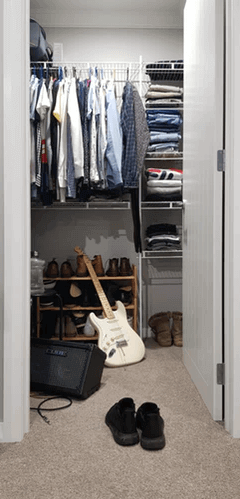
Photo by Jamesthethomas5 on Unsplash
When buying a home, you should make sure there is enough storage space for all your belongings. Avoid the stress of trying to fit everything in after the papers are signed.
Questions to ask about storage space:
- Is there an attic and/or basement?
- Can you transform the shed in the yard to storage space?
- Is there room for your furniture?
- Does it have a deep pantry and proper food shelving?
- How many closets are there and how big are they?
If you feel that you need more space, then you might need to consider a storage solution.
This way, you won’t have to:
- Spend money to buy new furniture
- Worry about not having enough space
- Look for ways to feel more comfortable in your own house
If you need a reliable and affordable storage solution, you can contact us at 020 3637 1234, and talk to one of our storage experts.
Question #22: Is There Pet Damage?

Photo by Alexis Chloe on Unsplash
Most likely the previous owners will have the carpet deep cleaned before showing the house, but damage from pets goes much deeper than just a quick cleaning.
Pet urine can stain the sub-floors of any home. You might not visually see these stains, however taking a black light to examine the carpets will help you identify problem areas.
These stains can be a health hazard for you and your family and could cost you more expenses than you planned.
Question #23: Which Direction Is The House Facing?
You might think the direction the house is facing doesn’t matter. However, it should be one of the key things to know when buying a property and your decision making.
The direction can determine the average temperatures within your home and could affect your utility bills.
It’s a good idea to visit the house at different times of the day to see how the sun enters the home and which rooms might be warmer than others.
Question #24: Are There Developmental Plans Scheduled For The Area?
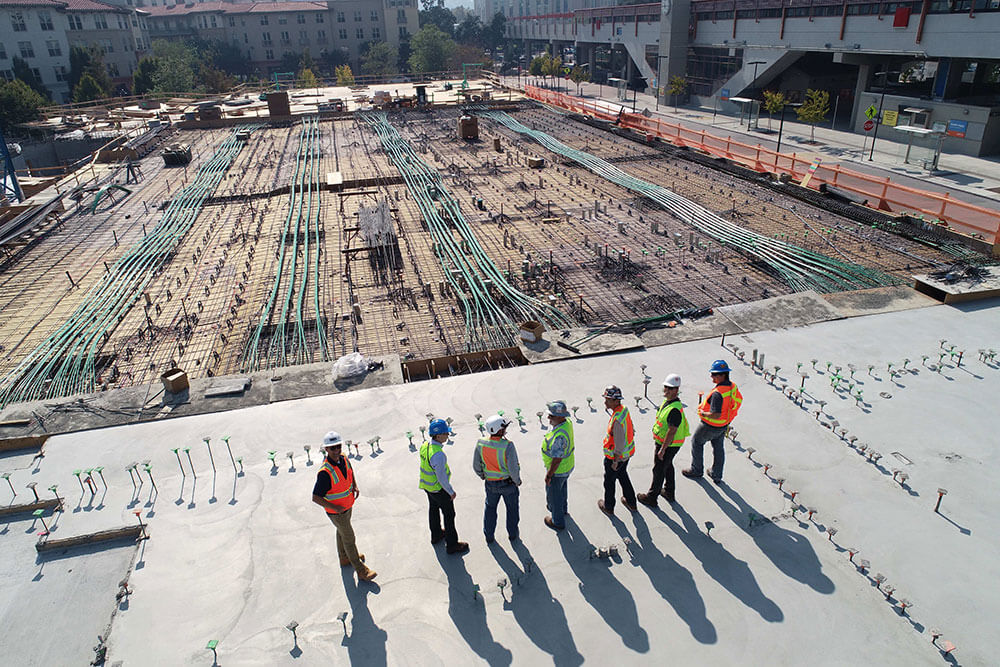
Photo by Scott Blake on Unsplash
Ask the estate agent if there are any developmental plans scheduled for the area. This can include a new train line, a new mall, shopping centre or new entertainment shops.
The construction of these buildings and the traffic they will bring will drastically affect the value of the property in the medium and long term.
This could also be negative if you move into a home that has a beautiful view of grasslands to only be covered with new homes and buildings in 12 months.
Question #25: Does The Home Come With A Security System?

Photo by Sebastian Scholz (Nuki) on Unsplash
Security systems are extremely beneficial to ensure that your home and belongings are protected.
Sometimes you’ll get lucky and the previous homeowners have already installed security cameras. You’ll then just need to create your own account with the security company.
When you have the seller in front of you, ask about previous security systems or about their thoughts regarding crime in the neighbourhood.
There are many different options to choose from. Have some peace of mind when you are sleeping or away on holiday that everything is protected.
Question #26: Have You Been Pre-Approved For A Mortgage?
Applying for a mortgage is never easy.
The earlier you can start planning, the better.
Once you have chosen a bank to get your home loan, ask more detailed questions to get a better understanding of the whole process.
- How much money can I borrow?
- How much is owed in the down payment?
- What are the interest rates? Can they be locked?
- Should I do a fixed or adjustable mortgage?
- Are there any other fees or costs associated?
Once you get closer to picking a home to make an offer on, you can then provide your loan lender more specific details to get accurate information.
Question #27: Will It Be Leasehold or Freehold?

Photo by Damiano Baschiera on Unsplash
Most houses are freehold, where you own the land that your house sits on as well as your home. As a freeholder you’d be responsible for maintaining your property and land.
Most flats are leasehold property. While you may own your property in the building, you don’t always have a stake in the building itself and the land that it sits on.
Note: A leasehold property can also come with share of freehold.
This is a crucial question you need to ask as a first time home buyer. Know what extra expenses you will have and what exactly you are responsible for.
It is also important to confirm how many years remain on a leasehold property as this is the first thing a mortgage lender will look for.
As a rule, whilst you have the right to pay to extend the lease of a property once you’ve owned it for 2 years or more, any leasehold with less than 68 years remaining, lenders aren’t as keen to lend on.
Question #28: How Soon Can You Move In?

Photo by Becca Tapert on Unsplash
Sometimes home-owners are looking to move out right away. However sometimes the current owners won’t be moving out for a couple of months.
Is there any repairs on the house which prevents it from being moved into? When will the current owners be moving out?
These factors will need to be considered when making a decision that’s best for you and your family.
Being upfront about your own timeline will save time and stress in the long run.
Question #29: What’s The Minimum Offer They Will Accept?

Photo by Mimi Thian on Unsplash
It’s a simple question to ask, but don’t underestimate the power of asking the minimum offer they will accept. It could ultimately save you thousands of pounds by asking.
Many sellers will meet you somewhere in between the offers, especially if the house has been on the market for a long period of time or if other factors are at play.
The bottom line is real estate agents and sellers want to both make money, and sometimes you can leverage this information to make it work for all parties involved.
Question #30: What’s Your Favourite Part Of The House?
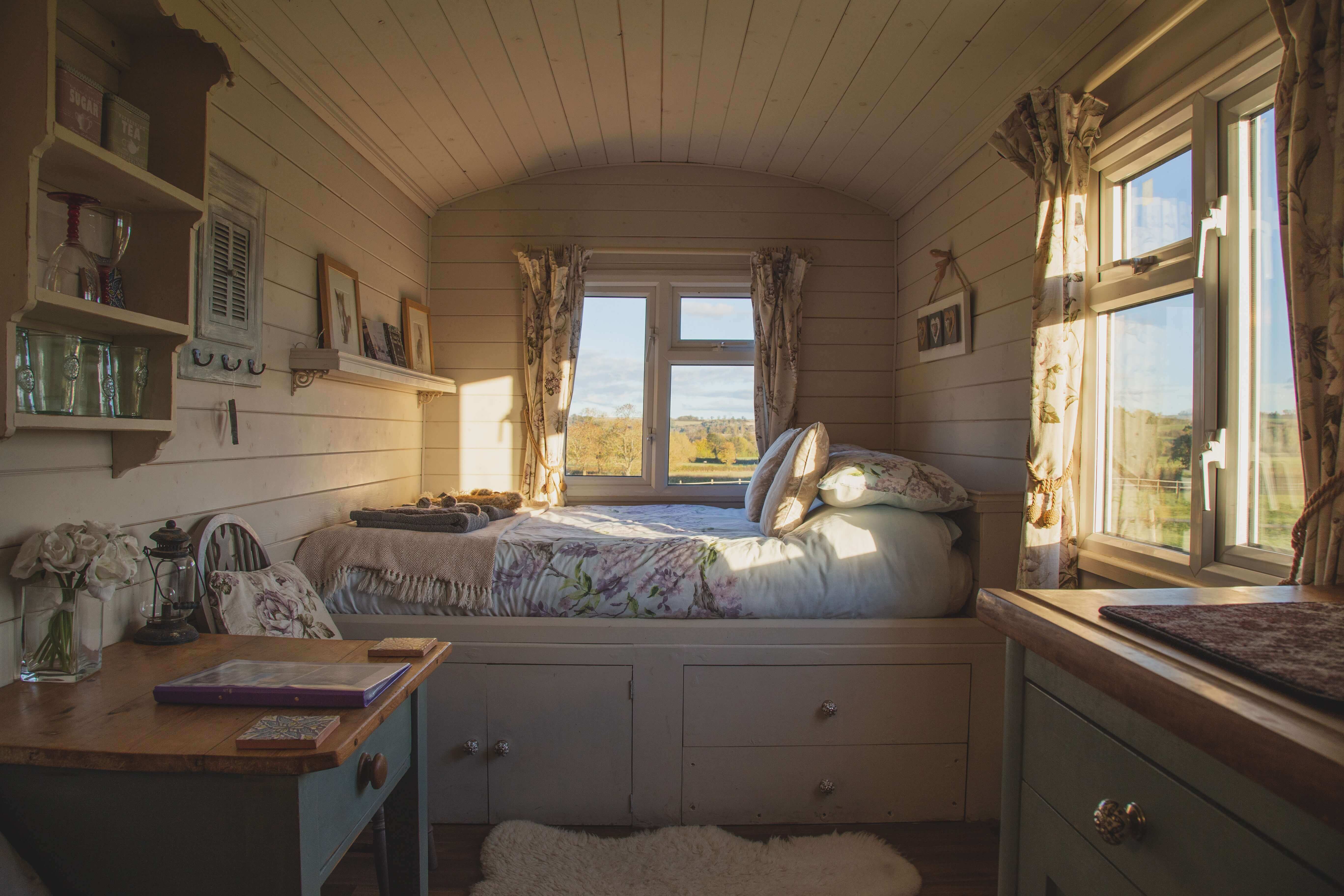
Photo by Devin Kleu on Unsplash
This question might catch the seller off guard, however it’s important to get an honest answer if it’s going to be your next home.
You might learn something positive about the area that you might not have known otherwise.
Whether it’s a close-knit community, a favourite place in their home, short walk to the grocery store, or favourite time of day where the sun shines on the patio.
Get the insider information while you can and maybe it will become your new favourite.
Now Over to You
Hopefully through this guide and by asking the right questions, you gain some valuable knowledge about your future home.
The most important thing to remember is to do thorough research and take your time. This will big a huge life decision but of the most joyous you can make.
Just think of all the exciting times you will have in your new home!
What questions were you surprised to see on the list? What stage are you at in the home buying process?
Some additional resources you might find useful:

